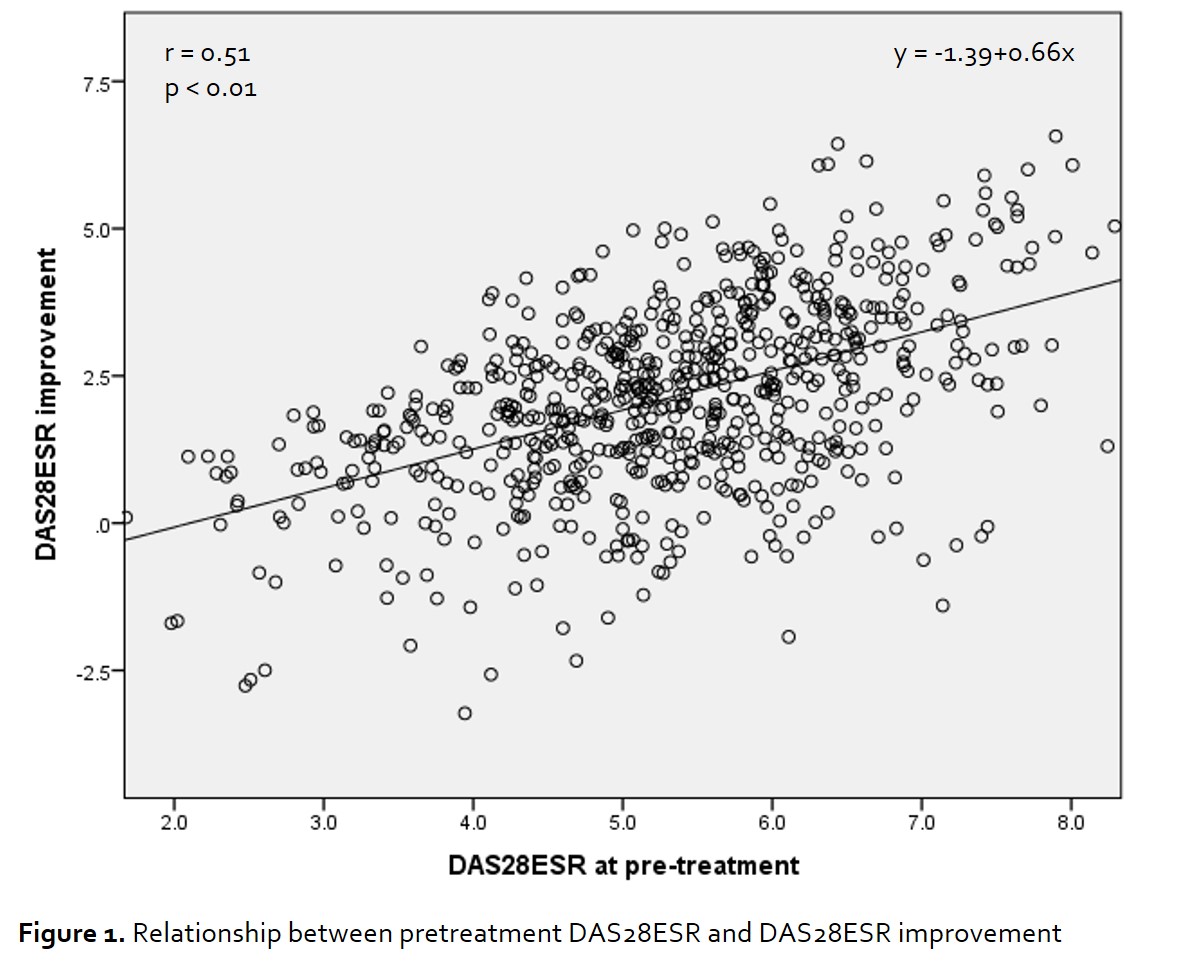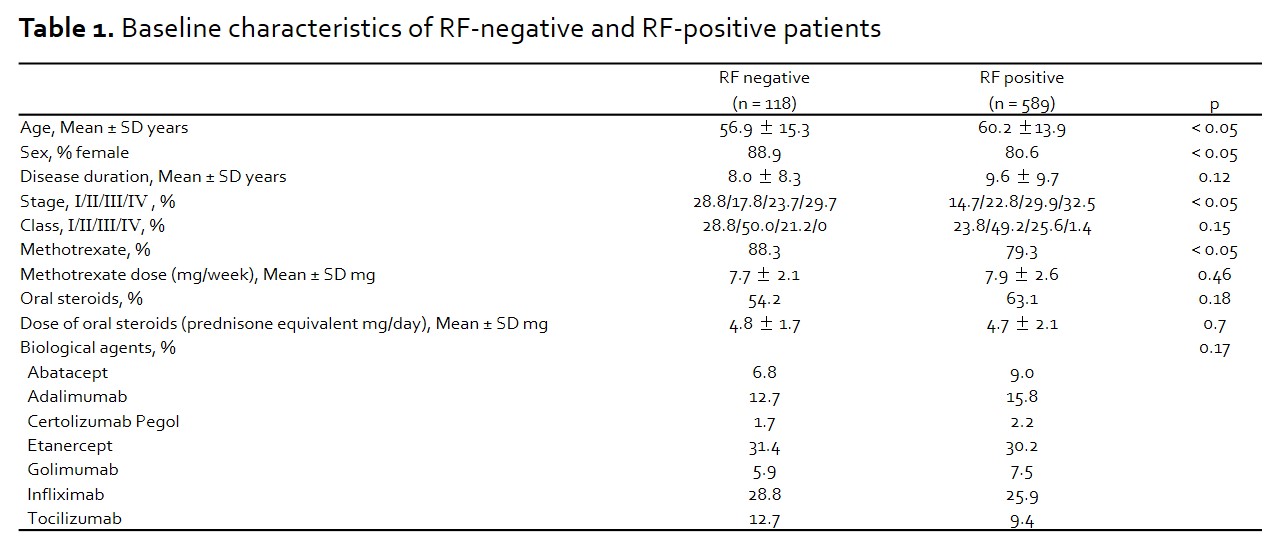Session Information
Date: Monday, November 9, 2015
Title: Rheumatoid Arthritis - Small Molecules, Biologics and Gene Therapy Poster II
Session Type: ACR Poster Session B
Session Time: 9:00AM-11:00AM
Background/Purpose:
Rheumatoid factor (RF) is considered an
important factor in diagnosing rheumatoid arthritis (RA). The association
between the treatment efficacy of biological agents and RF status (negative or
positive) is unclear; therefore, in the present study, we elucidated whether
pretreatment RF examination outcomes affect the efficacy of first biological
treatment in RA.
Methods:
The records of relevant patients with RA
were derived from Tsurumai Biologics Communication Registry (TBCR) where the
department of Nagoya University and 20 affiliated hospitals in Japan are
enrolled. The relevant data of a total of 707 patients with RA who met the 2010
ACR–EULAR classification criteria for RA were recorded with regard to both pre-
and post-biological treatment DAS28ESR; the RF status was divided into negative
(0–15 U/ml) or positive (>15 U/ml). RF-negative patients (n = 118) and
RF-positive patients (n = 589) were compared with regard to the effect of the
RF status on biological treatment. Only bio-naïve patients were included in
this study, and those who received second or latter biological treatment were
excluded. We analyzed the relevant data using the analysis of covariance method
(ANCOVA), with pretreatment DAS28ESR as the covariate.
Results:
The demographic characteristics of each
group at baseline are presented in Table 1. Pretreatment DAS28ESR was
significantly associated with DAS28ESR improvement, with a higher pretreatment
DAS28ESR corresponding to larger DAS28ESR improvement (p < 0.01; Figure 1).
Pretreatment DAS28ESR was 5.07 in RF-negative patients and 5.34 in RF-positive
patients, with DAS28ESR improvement of 2.25 and 2.09, respectively.
Compensating each DAS28ESR according to pretreatment value using ANCOVA, DAS28ESR
improvement was 2.40 in RF-negative patients and 2.06 in RF-positive patients,
respectively, and the difference was significant (p < 0.05; Table 2).
Conclusion:
The RF status significantly affected
DAS28ESR improvement in the first biological treatment. Additionally, the
efficacy of the first biological treatment in RF-positive patients was inferior
to that in RF-negative patients with RA.
To cite this abstract in AMA style:
Ogawa Y, Takahashi N, Funahashi K, Asai S, Takemoto T, Watanabe T, Asai N, Ishiguro N, Kojima T. Rheumatoid Factor Status Affects the Efficacy of First Biological Treatment in RA [abstract]. Arthritis Rheumatol. 2015; 67 (suppl 10). https://acrabstracts.org/abstract/rheumatoid-factor-status-affects-the-efficacy-of-first-biological-treatment-in-ra/. Accessed .« Back to 2015 ACR/ARHP Annual Meeting
ACR Meeting Abstracts - https://acrabstracts.org/abstract/rheumatoid-factor-status-affects-the-efficacy-of-first-biological-treatment-in-ra/



